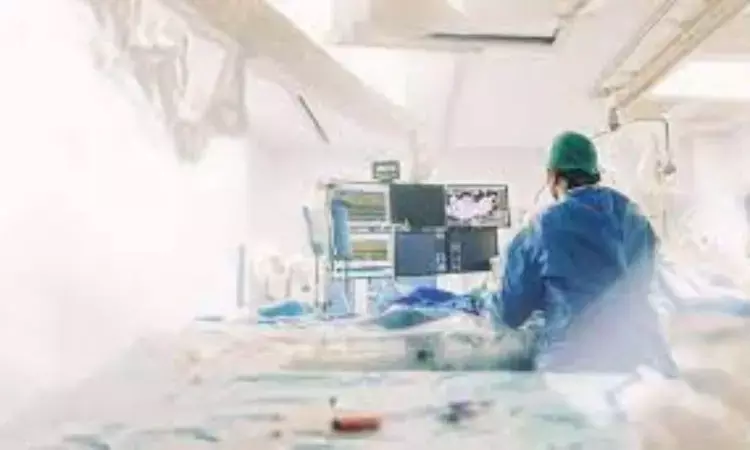- Home
- Medical news & Guidelines
- Anesthesiology
- Cardiology and CTVS
- Critical Care
- Dentistry
- Dermatology
- Diabetes and Endocrinology
- ENT
- Gastroenterology
- Medicine
- Nephrology
- Neurology
- Obstretics-Gynaecology
- Oncology
- Ophthalmology
- Orthopaedics
- Pediatrics-Neonatology
- Psychiatry
- Pulmonology
- Radiology
- Surgery
- Urology
- Laboratory Medicine
- Diet
- Nursing
- Paramedical
- Physiotherapy
- Health news
- Fact Check
- Bone Health Fact Check
- Brain Health Fact Check
- Cancer Related Fact Check
- Child Care Fact Check
- Dental and oral health fact check
- Diabetes and metabolic health fact check
- Diet and Nutrition Fact Check
- Eye and ENT Care Fact Check
- Fitness fact check
- Gut health fact check
- Heart health fact check
- Kidney health fact check
- Medical education fact check
- Men's health fact check
- Respiratory fact check
- Skin and hair care fact check
- Vaccine and Immunization fact check
- Women's health fact check
- AYUSH
- State News
- Andaman and Nicobar Islands
- Andhra Pradesh
- Arunachal Pradesh
- Assam
- Bihar
- Chandigarh
- Chattisgarh
- Dadra and Nagar Haveli
- Daman and Diu
- Delhi
- Goa
- Gujarat
- Haryana
- Himachal Pradesh
- Jammu & Kashmir
- Jharkhand
- Karnataka
- Kerala
- Ladakh
- Lakshadweep
- Madhya Pradesh
- Maharashtra
- Manipur
- Meghalaya
- Mizoram
- Nagaland
- Odisha
- Puducherry
- Punjab
- Rajasthan
- Sikkim
- Tamil Nadu
- Telangana
- Tripura
- Uttar Pradesh
- Uttrakhand
- West Bengal
- Medical Education
- Industry
Catheter Ablation Beats Drug Therapy in Atrial Fibrillation Patients With Lower Risk Factors: CABANA Subanalysis

China: A new secondary analysis of the Catheter Ablation vs Anti-Arrhythmic Drug Therapy for Atrial Fibrillation (CABANA) trial suggests that the benefit of catheter ablation over drug therapy in atrial fibrillation (AF) largely depends on the patient’s burden of non-modifiable recurrence risk factors (NMRRFs).
- The study analyzed 2,185 participants with a median age of 67 years, of whom 62.8% were male.
- A total of 1,100 patients were assigned to catheter ablation, while 1,085 received drug therapy.
- Nearly 67.2% of patients had fewer than three nonmodifiable recurrence risk factors (NMRRFs).
- In patients with fewer than three NMRRFs, catheter ablation significantly reduced the primary composite endpoint of death, disabling stroke, serious bleeding, or cardiac arrest (adjusted hazard ratio [AHR], 0.59).
- No significant benefit in the primary composite outcome was observed in patients with three or more NMRRFs (AHR, 1.55).
- Across all groups, catheter ablation did not lower all-cause mortality, but consistently reduced atrial fibrillation (AF) recurrence and improved quality of life during follow-up.
- AF recurrence rates were substantially lower with ablation (<3 NMRRFs: AHR, 0.46; ≥3 NMRRFs: AHR, 0.58).
- Symptom burden decreased in both subgroups, indicating quality-of-life improvement with ablation.
Dr Kamal Kant Kohli-MBBS, DTCD- a chest specialist with more than 30 years of practice and a flair for writing clinical articles, Dr Kamal Kant Kohli joined Medical Dialogues as a Chief Editor of Medical News. Besides writing articles, as an editor, he proofreads and verifies all the medical content published on Medical Dialogues including those coming from journals, studies,medical conferences,guidelines etc. Email: drkohli@medicaldialogues.in. Contact no. 011-43720751


